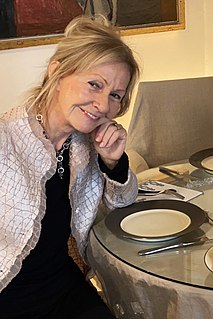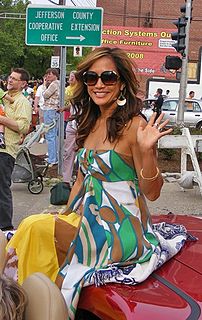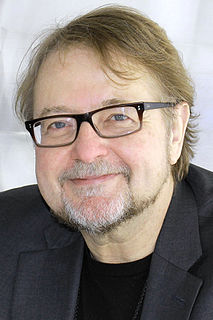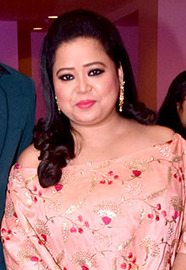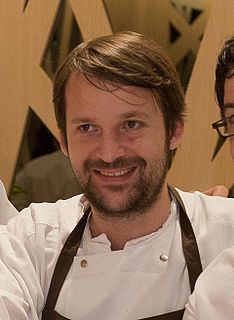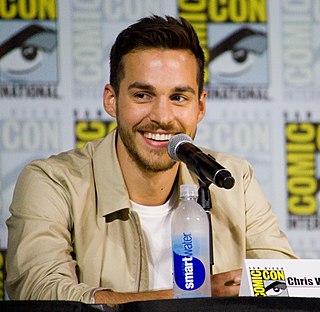A Quote by Mireille Guiliano
Women are smarter by basic instinct and by what we have to do to multitask at home and at work. My mother did that 50 years ago, but it wasn't called multitasking or stress back then. She had a job, two kids and the meals to make with no cook or maid. My father would come home every day and expect lunch. He was a nice guy, but he was clueless!
Related Quotes
My grandmother used to cook for eight every day - sitting down lunches and dinner, the way you do it in Italy, you sit down. And when my parents could afford their own place, I went with them but still my mother used to work but used to come back from work to cook lunch for my father, come back from work, cook dinner for my father and me.
Many years ago I had two small children, and I wanted to be able to be home when they got home from school. And I didn't like the direction journalism was taking. I thought if I could write books, I could work at home and have the best of both worlds. I wrote my first mystery while still working full time, and it didn't sell, but the next one did sell, so I quit my job for the world of fiction. Scary, but I've never regretted it for a single day.
You wake up, your life is discipline: there's kids, breakfast, lunch box, go to work, discipline, organization, guests. Imagine the semi-final of Super Bowl. We have that every day: lunch and dinner. We play that game. Then you come home and you really just want to drink a beer. But then you discipline yourself and you have to do this thing, this journal. It was painful but I'm so happy I did it. I have newfound respect for people that write.
I walk out of this office every day at 5:30 so I'm home for dinner with my kids at 6, and interestingly, I've been doing that since I had kids. I did that when I was at Google, I did that here, and I would say it's not until the last year, two years, that I'm brave enough to talk about it publicly. Now I certainly wouldn't lie, but I wasn't running around giving speeches on it." "...there's no such thing as work-life balance. There's work, and there's life, and there's no balance.
My mother was very passionate about life and she would do anything for us. And she had to fight alone to raise us. We never had a lot of money for extras or anything. She had to work six days a week, and then she would do breakfast, lunch and dinner. She was a super-woman! For me, I don't know how she did it with three kids.
I think back to the day I drove Michelle and a newborn Malia home from the hospital nearly 11 years ago - crawling along, miles under the speed limit, feeling the weight of my daughter's future resting in my hands. I think about the pledge I made to her that day: that I would give her what I never had - that if I could be anything in life, I would be a good father. I knew that day that my own life wouldn't count for much unless she had every opportunity in hers.
My shoulders sagged. Really, is it too much to ask that I be able to come home from a long day of work and relax? Oh, no. I have to come home and read a bunch of letters written to the love of my life by his fiancée, who, if I am correct, had him killed a hundred and fifty years ago. Then, as if that is not bad enough, he wants me to explain the Vietnam War.
I lost my father four years ago to what was the culmination of a manic episode that seemingly, to my family, came completely out of the blue after 59 years on this earth with no issues that we knew about, at least - sort of a normal run-of-the-mill guy who did his job and came home and had a family.
And Mel [Brooks] - you have to understand this important point - he had done "The Producers" for $50,000 over two years, and he didn't make a penny from it. And then he did "The Twelve Chairs" - $50,000 for two more years and didn't make a penny from it. That's four years of work. And then they offered him quite a bit of money to direct "Young Frankenstein," and he took it.
